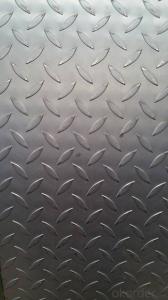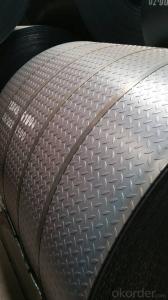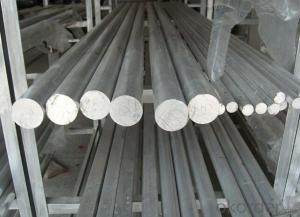HR Q235 Hot Rolled Steel Plates Alloy Steel Sheets
- Loading Port:
- Tianjin
- Payment Terms:
- TT OR LC
- Min Order Qty:
- 25 m.t.
- Supply Capability:
- 50000 m.t./month
OKorder Service Pledge
OKorder Financial Service
You Might Also Like
Item specifice
HR Q235 Hot Rolled Steel Plate High Alloy Steel Sheet
Product Description:
1.Q235 hot rolled steel plate and sheet with high strength
2. Thickness:8mm-250mm, width:1500mm-2250mm
3.ISO and BV certificate
4.Standard:GB/T 3274-2007,JIS G3106,DIN17100, ASTM, BS4360
5.Delivery condition: According to the requirements of customers, the carbon steel mild steel plate and sheet could be hot rolled, cold rolled, normalized, annealed, tempered, normalized+ tempered and tempering.
6.Application:The low alloy steel plate and sheet with high strength is mainly used in making Plants, general constructions, different kinds of engineering machines such as electric wheels skip, mine car, excavator, loaders, bulldozers, industrial blower, various cranes used in mines and other structures.
Specification:
Material | Q235 | Round bar | Dia(mm) | 16-600 |
Process | EAF + LF + VD + Forged + Heat Treatment (optional) | Length (mm) | Max 12000 | |
Heat treatment | Normalized / Annealed / Quenched / tempered | Flat bar | Thickness(mm) | 8-500 |
Delivery condition | Hot forged +Rough machined (black surface after Q/T)+ Turned (optional) | Width(mm) | 70-200 | |
Test | Ultrasonic test according to SEP 1921-84 D/d | Length (mm) | Max 12000 |
Chemical Composition:
C | Si | Mn | Cr | Ni | Cu |
0.5~0.8 | 0.17~0.37 | 0.25~1.2 | ≤0.25 | ≤0.30 | ≤0.25 |
Packing and Delivery:
Packing in bundle with steel strips and shipped by break bulk vessel or container (depend on target market and different ports)
Delivery Detail: Approx.45 days
Usage and Applications:
1.Q235 Hot Rolled Steel Plate High Alloy Steel Sheet is used in a large number of architectural and engineering structures. Or it can be used in construction of plants for the production of steel house frames, high-voltage transmission towers, bridges, vehicles, boilers, containers, ships, etc.
2. And we can use this kind of product on the performance of the mechanical parts if the demand is not very high.
3. Some especial material steel round bar can be used for main shaft of steamer, hummer shank, with big section and supper force.
Product Show:
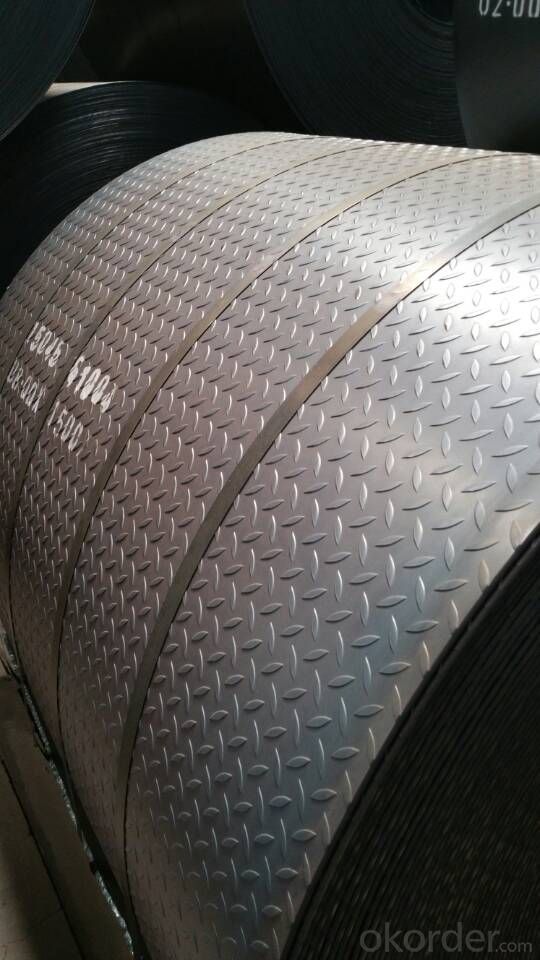
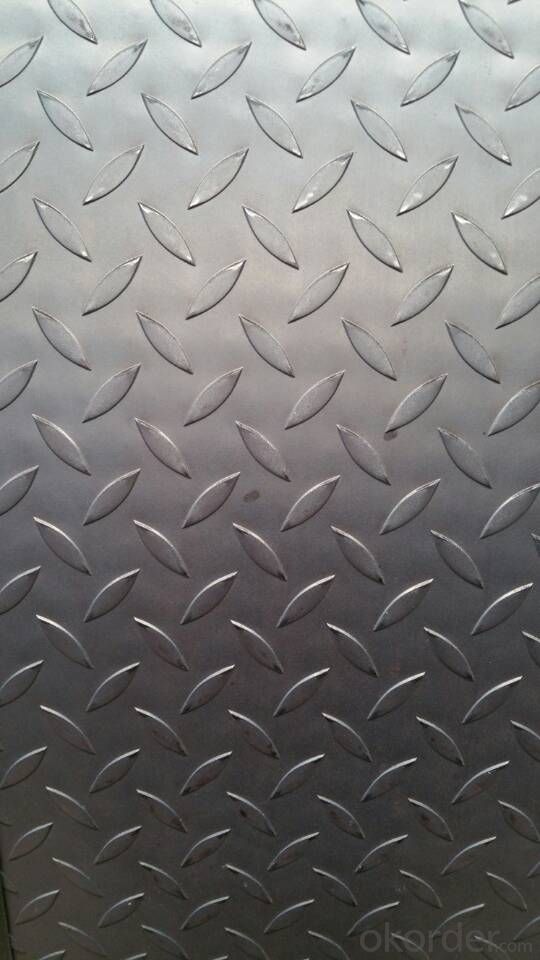
- Q:What are the specific requirements for special steel used in the textile machinery industry?
- The special steel requirements for the textile machinery industry can differ based on the specific application and machinery involved. Nevertheless, there are several common requirements in this industry. Firstly, corrosion resistance is crucial as textile machinery is frequently exposed to moisture, chemicals, and other corrosive substances. Therefore, the special steel used must possess excellent corrosion resistance properties to ensure durability and longevity. Secondly, high strength is necessary since textile machinery operates under high loads and stresses. Consequently, the special steel employed must have strong characteristics to withstand these forces and prevent deformation or failure. Furthermore, wear resistance is important as textile machinery involves constant contact between different components, leading to wear and tear. Thus, the special steel utilized should exhibit good wear resistance properties to minimize friction and extend the machinery's lifespan. Additionally, heat resistance is vital as textile machinery often operates at high temperatures due to friction generated during the manufacturing process. Consequently, the special steel used should possess exceptional heat resistance to prevent deformation or loss of mechanical properties under high temperature conditions. Moreover, machinability is necessary for the special steel used in the textile machinery industry. This allows for the production of complex components with precise dimensions, ensuring smooth and efficient machinery operation. Lastly, cost-effectiveness is crucial while meeting all the aforementioned requirements. Manufacturers strive to balance performance and cost to maintain competitiveness in the market without compromising on quality. It is important to note that these requirements can vary depending on the specific application within the textile machinery industry. As a result, manufacturers and engineers must carefully evaluate their machinery's requirements and choose the appropriate special steel accordingly.
- Q:What is the significance of carbon content in special steel?
- The carbon content in special steel is significant because it determines the steel's hardness, strength, and overall performance. Higher carbon content results in increased hardness and strength, making the steel suitable for applications requiring durability and resistance to wear and tear. On the other hand, lower carbon content enhances the steel's ductility and formability, making it more suitable for shaping and molding processes. Therefore, carbon content plays a crucial role in tailoring the properties of special steel to meet specific industrial requirements.
- Q:How does special steel contribute to the renewable energy industry?
- Special steel plays a crucial role in the renewable energy industry by providing the necessary strength, durability, and resistance to extreme conditions for various applications. It is used in wind turbines, solar panels, and hydroelectric infrastructure, enabling the efficient and reliable generation of renewable energy. Special steel also helps enhance the performance, efficiency, and lifespan of these renewable energy systems, ultimately contributing to the sustainability and growth of the industry.
- Q:What are the different galvanizing techniques used for special steel?
- There are several galvanizing techniques used for special steel, including hot-dip galvanizing, electro-galvanizing, and mechanical galvanizing. Hot-dip galvanizing involves immersing the steel in a bath of molten zinc, creating a thick, durable coating. Electro-galvanizing, on the other hand, uses an electrical current to deposit a thin layer of zinc onto the steel surface. Mechanical galvanizing involves tumbling the steel in a zinc powder and glass bead mixture, which adheres to the surface through friction. Each technique has its own advantages and is used depending on the specific requirements of the application.
- Q:What are the common quality control measures for special steel?
- Some common quality control measures for special steel include performing chemical composition analysis, conducting mechanical property testing, inspecting surface defects, ensuring dimensional accuracy, and conducting non-destructive testing such as ultrasonic or magnetic particle inspection. Additionally, the use of standardized quality control systems, such as ISO 9001, can aid in ensuring consistent and reliable production of special steel.
- Q:How does special steel contribute to sustainable development?
- Special steel contributes to sustainable development in several ways. Firstly, it is a highly durable and long-lasting material, which means that products made from special steel have a longer lifespan and require fewer replacements. This reduces the overall consumption of resources and decreases waste generation. Secondly, special steel is often used in energy-efficient applications, such as renewable energy infrastructure and energy-efficient transportation. These applications help reduce greenhouse gas emissions and contribute to the transition to a low-carbon economy. Lastly, the production of special steel involves continuous improvements in energy efficiency, waste reduction, and recycling. This helps minimize the environmental impact of the steel industry and promotes more sustainable manufacturing practices.
- Q:What are the applications of special steel in the aerospace industry?
- Special steel has various applications in the aerospace industry due to its exceptional properties. It is commonly used in aircraft engines, landing gears, and structural components. Special steel's high strength-to-weight ratio, corrosion resistance, and ability to withstand high temperatures make it suitable for critical parts that require durability, reliability, and performance in extreme conditions. Additionally, its excellent fatigue resistance and ability to be heat-treated allow for the production of lightweight yet robust components, contributing to fuel efficiency and overall aircraft performance.
- Q:How does special steel withstand high-velocity impacts?
- Special steel is able to withstand high-velocity impacts due to its unique properties and composition. One key factor is its high strength and hardness, which allows it to resist deformation and fracture under extreme forces. Special steel also often contains alloying elements such as chromium, molybdenum, nickel, and vanadium, which contribute to its exceptional toughness and impact resistance. Furthermore, special steel is often heat-treated to enhance its mechanical properties. Through processes such as quenching and tempering, the steel's microstructure is altered, resulting in a fine-grained structure with improved strength and hardness. This heat treatment also enhances the steel's ability to absorb and dissipate energy during high-velocity impacts, reducing the risk of failure. Moreover, special steel is often designed with specific alloys and compositions to enhance its performance in particular applications. For example, some grades of steel are specifically engineered for armor applications, where they must withstand high-velocity impacts from projectiles. These steels may have additional elements such as boron or titanium, which further enhance their ability to resist penetration and deformation under extreme loads. In summary, special steel's ability to withstand high-velocity impacts is attributed to its high strength, hardness, toughness, and impact resistance. Its unique composition, heat treatment processes, and targeted design make it a reliable choice for applications where impact resistance is crucial.
- Q:What is the role of special steel in sustainable manufacturing?
- Special steel plays a crucial role in sustainable manufacturing by offering numerous advantages that contribute to environmentally friendly production processes. Firstly, special steel is highly durable and has a long lifespan, which reduces the need for frequent replacement or repairs. This durability minimizes waste and extends the life cycle of products, reducing the overall environmental impact. Furthermore, special steel has excellent recyclability properties. It can be recycled multiple times without losing its quality or performance, making it a sustainable choice for manufacturers. By incorporating recycled special steel into the production process, manufacturers can reduce their reliance on virgin materials and decrease energy consumption and greenhouse gas emissions associated with the extraction and production of new steel. Moreover, special steel offers high strength and lightweight characteristics, enabling manufacturers to design products that are more energy-efficient. For example, in the automotive industry, using special steel in the manufacturing of vehicles reduces their weight, leading to improved fuel efficiency and lower emissions. This contributes to the reduction of carbon footprint and supports sustainable transportation. Special steel also plays a significant role in the production of renewable energy technologies. Wind turbines, solar panels, and hydropower systems require sturdy and resilient materials to withstand harsh conditions. Special steel provides the necessary strength, corrosion resistance, and durability required for these renewable energy infrastructure projects. By enabling the development of such technologies, special steel contributes to the growth of the renewable energy sector, which is essential for transitioning to a more sustainable energy mix. In conclusion, special steel plays a vital role in sustainable manufacturing by offering durability, recyclability, lightweight properties, and strength. By using special steel, manufacturers can reduce waste, energy consumption, and emissions, while also enabling the development of energy-efficient products and renewable energy technologies. Incorporating special steel into manufacturing processes is an essential step towards achieving a more sustainable and environmentally friendly future.
- Q:How is special steel heat treated?
- Special steel is heat treated using a combination of heating and cooling processes to enhance its mechanical properties. This typically involves heating the steel to a specific temperature and holding it there for a designated period of time, followed by rapid cooling or quenching. The heat treatment process can vary depending on the desired outcome, such as improving hardness, strength, or toughness, and may also involve additional steps like tempering or annealing.
1. Manufacturer Overview |
|
|---|---|
| Location | |
| Year Established | |
| Annual Output Value | |
| Main Markets | |
| Company Certifications | |
2. Manufacturer Certificates |
|
|---|---|
| a) Certification Name | |
| Range | |
| Reference | |
| Validity Period | |
3. Manufacturer Capability |
|
|---|---|
| a)Trade Capacity | |
| Nearest Port | |
| Export Percentage | |
| No.of Employees in Trade Department | |
| Language Spoken: | |
| b)Factory Information | |
| Factory Size: | |
| No. of Production Lines | |
| Contract Manufacturing | |
| Product Price Range | |
Send your message to us
HR Q235 Hot Rolled Steel Plates Alloy Steel Sheets
- Loading Port:
- Tianjin
- Payment Terms:
- TT OR LC
- Min Order Qty:
- 25 m.t.
- Supply Capability:
- 50000 m.t./month
OKorder Service Pledge
OKorder Financial Service
Similar products
New products
Hot products
Hot Searches
Related keywords
